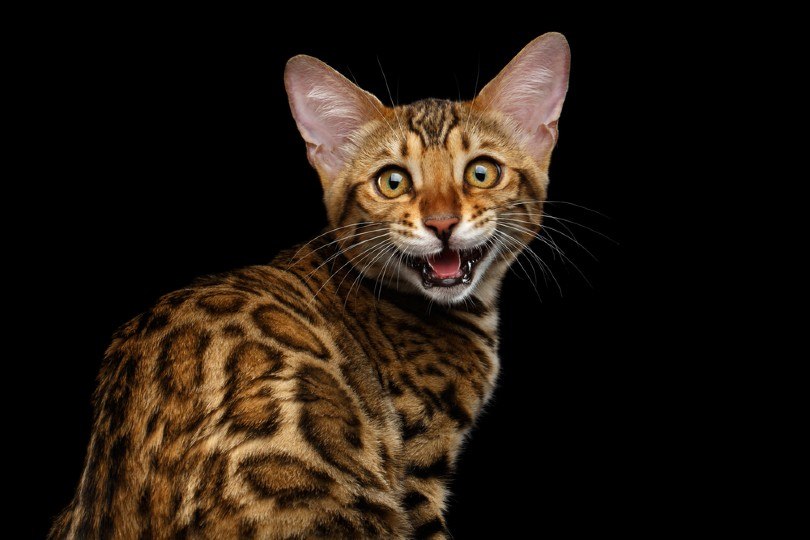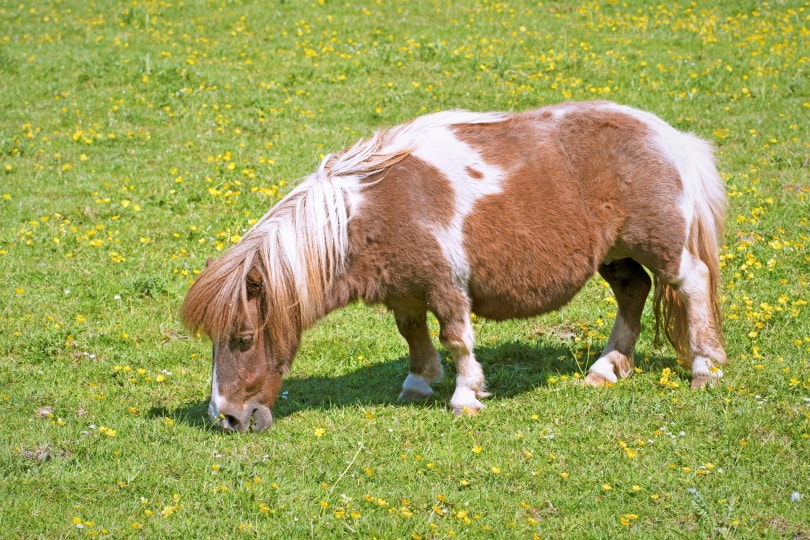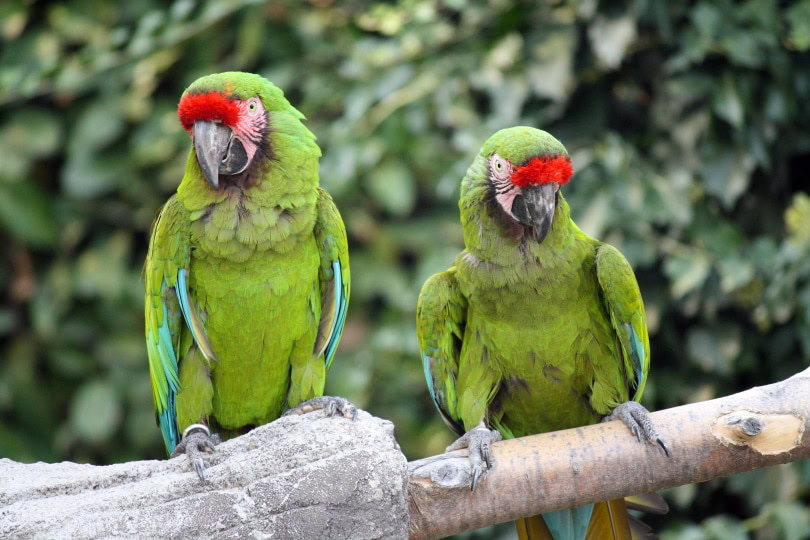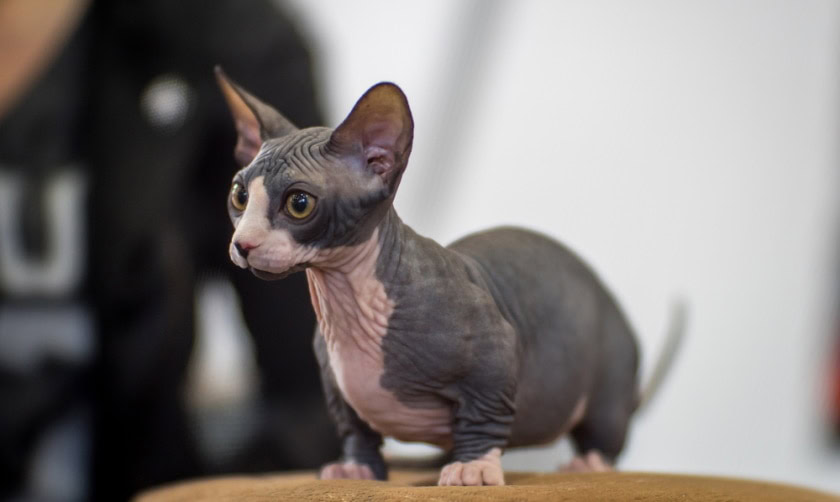Some cats hardly make a peep, while others yell almost constantly. Chatty cats purr, meow, chirp, and make all sorts of noises. They may chat specifically with you or talk all the time.
If you’re looking for a vocal cat breed, this article will inform you of the noisiest cat breeds, allowing you to make a suitable decision for your preferences. Some of these cats are relatively common, like the Siamese. Others are rarer, however.

The 7 Most Vocal Cat Breeds
1. American Bobtail Cat Breed
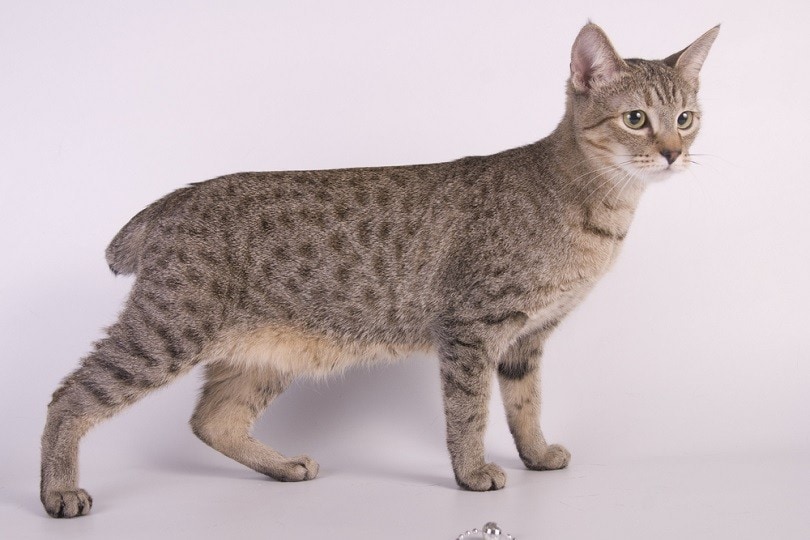
| Size: | 7–16 pounds; males are considerably larger |
| Coat: | All lengths |
| Colors: | Many |
| Lifespan: | 13–15 years |
The American Bobtail is rarer than others on our list, but they are common enough to locate breeders relatively easily. They are social and easygoing, which drives their chattiness. They will meow and ask for attention. They get along with children and most other pets (besides prey animals, of course).
American Bobtails are often described as “dog-like.” They are intelligent and can be trained to play fetch and walk on a leash. Their coat can have various colors, including black, brown, fawn, and blue. They are considered a moderate-shedding breed, and their coat will require brushing a few times a week.
They are a strong and healthy breed with few genetic dispositions. However, their shortened tail can occasionally cause spinal problems.
If you are concerned about your cats vocalizations, we suggest consulting with a vet to ensure it is not a sign of a more serious issue.
2. Balinese-Javanese Cat Breed
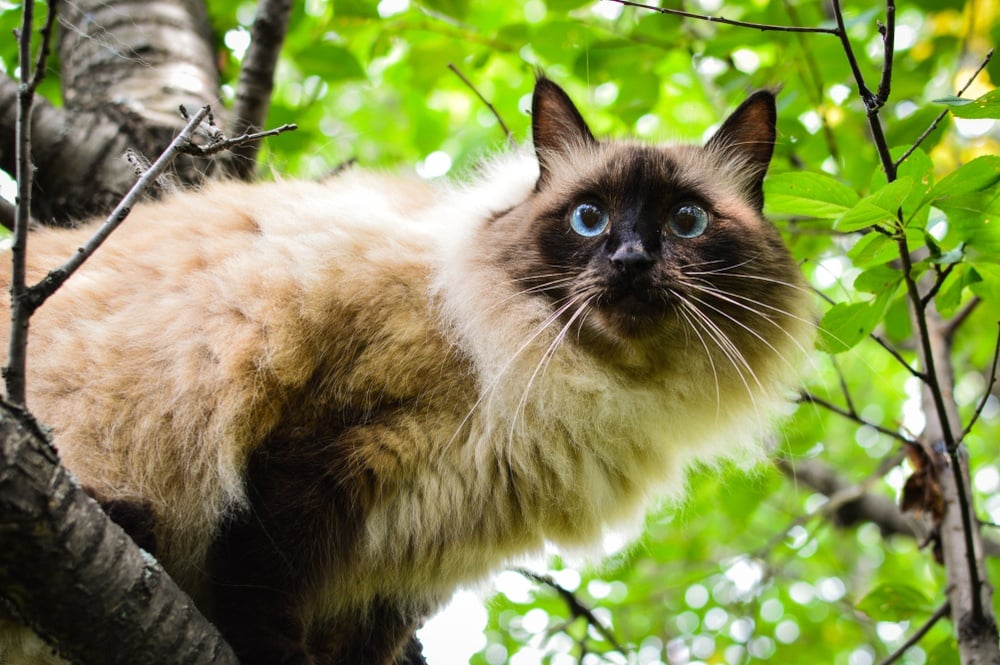
| Size: | 8–12 pounds |
| Coat: | Medium |
| Colors: | Various point colorations |
| Lifespan: | 15+ years |
In the United States, Balinese cats are relatively rare. They are fun-loving and quite active. They are very close with their people and love to meow for attention, which is exactly why they are noisy. They are intelligent, but they do require a lot of attention.
Balinese are known for their distinctive tail plume. They are slender cats but also quite muscular. They look similar to a Siamese, with blue eyes and large ears. They are moderate shedders, as they have no undercoat. Weekly brushing is all that’s required.
They are a healthy breed, though they do have some problems with feline acromelanism, which causes their coat to change colors. They may also develop Progressive Retinal Atrophy, which can be severe and cause blindness.
3. Bengal Cat
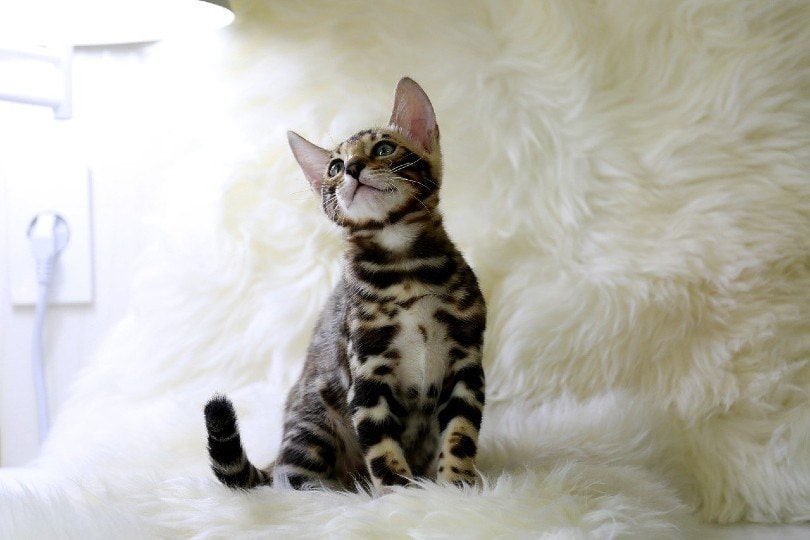
| Size: | 6–18 pounds |
| Coat: | Medium |
| Colors: | Orange to light brown |
| Lifespan: | 12–16 years |
Bengals are athletic cats, though they don’t look bulky. Typically, they have dark markings around their eyes, smaller ears, and soft, short fur. They have one of the most unique patterns of any cat. Their coats are contrasting shades of orange and light brown with marbling patterns.
These are very low-maintenance cats and don’t shed incredibly much. They are also very good at self-grooming. Bengals are prone to distal neuropathy and flat-chested kitten syndrome. They may also develop hip problems, cardiomyopathy, and progressive retinal atrophy.
4. Burmese Cat
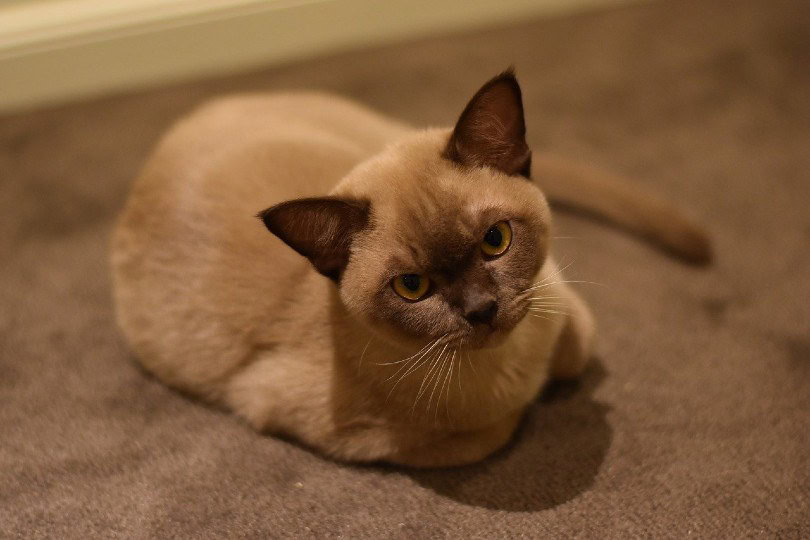
| Size: | 6–12 pounds |
| Coat: | Short |
| Colors: | Blue, platinum, champagne, sable |
| Lifespan: | 10–16 years |
Known for being energetic and playful, Burmese cats love playtime. They thrive with interactive toys and are particularly fond of their owners; they often talk to their favorite people. Many cat parents describe them as having a dog-like nature.
They are strong and muscular, though also compact. Burmese cats come in a variety of colors today, though the first one was sable. Typically, kittens darken as they mature.
Burmese cats are particularly prone to gingivitis and may be sensitive to anesthesia. They aren’t the healthiest cats but are also prone to various other diseases, including corneal dermoid, kinked tail, and diabetes.
5. Oriental Cat Breed
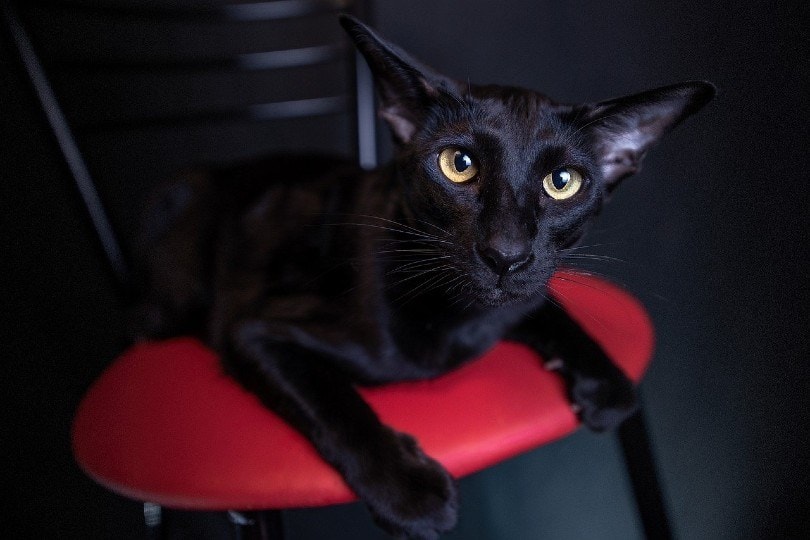
| Size: | 5–10 pounds |
| Coat: | Short or long |
| Colors: | Blue, lavender, fawn, ebony, chestnut, cinnamon, cream |
| Lifespan: | 8–15 years |
Oriental cats are incredibly sleek. They have short, glossy coats, though longhaired versions have semi-long coats. Their ears are enormous for their head. Usually, their coats range from solids to tabbies to silvers, but they’re available in several colors.
They don’t shed much and only need occasional brushing since they do an excellent job grooming and staying clean. Their lack of a wooly undercoat helps reduce their shedding considerably.
They are members of the Siamese family, which puts them at risk for various health conditions. They are prone to inherited neurological defects that may cause crossed eyes, dilated cardiomyopathy, and liver amyloidosis.
6. Siamese Cat Breed
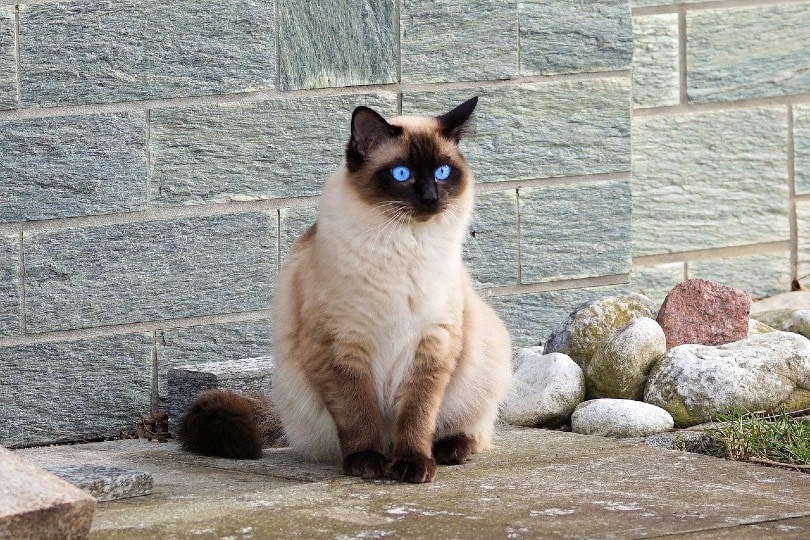
| Size: | 8–15 pounds |
| Coat: | Short |
| Colors: | Point coloration, including seal, chocolate, blue, and lilac |
| Lifespan: | 11–15 years |
Known as one of the most vocal cat breeds, Siamese cats are known for their social nature. They talk to practically anyone and are pretty loud. They are lovable pets, thriving on companionship and social relationships. They are highly intelligent, love puzzle feeders, and can even learn a few tricks.
Siamese cats are slender and have long legs. Usually, they have deep blue eyes that are almond-shaped. Their point coloring can range from brown to blue to chocolate. They can also come in other patterns, including tabby. They don’t shed much, mainly because of their short coat.
Due to their head shape, Siamese cats are prone to various periodontal diseases and respiratory illnesses. They may also develop some physical deformities. Visual problems are also common, as well as heart and bladder issues.
7. Sphynx Cat Breed
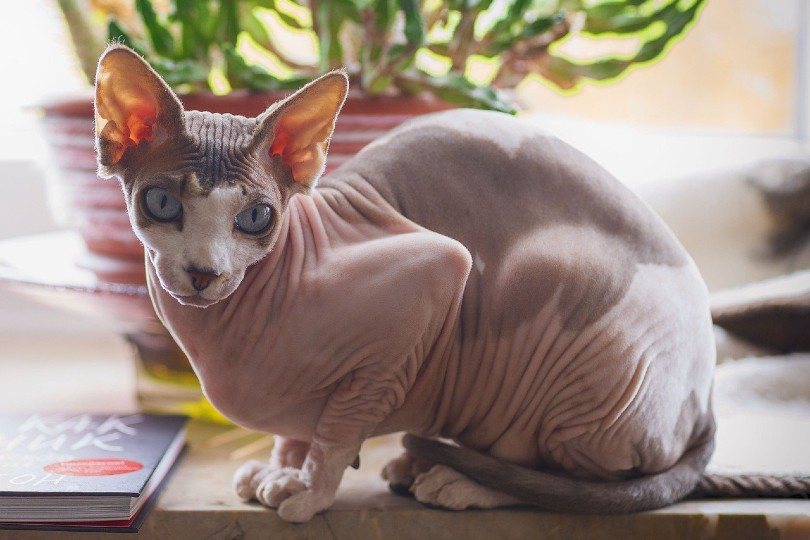
| Size: | 6–12 pounds |
| Coat: | Hairless |
| Colors: | Many |
| Lifespan: | 8–15 years |
Sphynx cats are lively and loveable. They like attention and are very vocal about their needs. They are lap cats and enjoy talking to their companions. They are incredibly playful and entertaining, and their wrinkled skin and huge ears are unique.
They come in all sorts of colors, including white, blue, red, chocolate, lavender, and fawn. While Sphynx cats don’t shed, they require regular baths to remove the oils from their skin. If you start early, most learn to love their baths.
They are at a higher risk for hypertrophic cardiomyopathy, which is deadly heart disease.


Conclusion
Talkative felines aren’t the ideal pets for everyone, but for those who adore them, the seven breeds we discussed are rarely silent. They frequently meow whether they’re hungry or not and enjoy talking to their favorite people. We hope this article has helped you decide which chatty feline is perfect for your home.
Related Read:
- Do Tortoiseshell Cats Meow More Than Others? (Science & FAQ)
- 14 Cat Breeds That Get Along With Dogs (With Pictures)
Featured Image: Seregraff, Shutterstock
